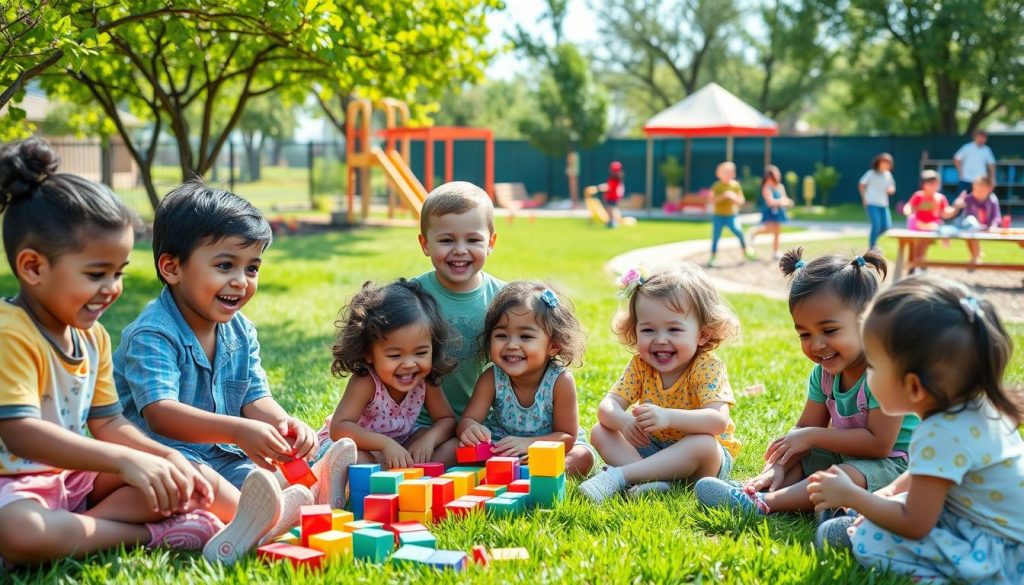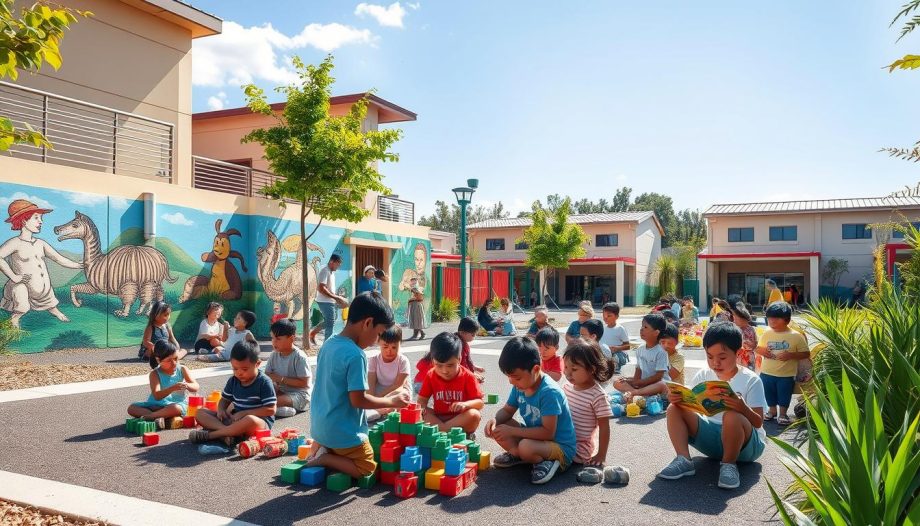As we embark on the journey of nurturing young minds, the significance of Early Childhood Development becomes increasingly evident. These formative years are a crucial period for laying the groundwork for our children’s cognitive, social, and emotional growth. By implementing effective Child Growth Strategies, we can not only enhance their learning experiences but also foster a supportive environment that encourages development. According to the Centers for Disease Control and Prevention (CDC), the impact of early experiences is profound, shaping our children’s future academic and social successes. With the right Child Learning Techniques, we can help ensure they thrive during these pivotal stages.
Understanding the Importance of Early Childhood Development
Early childhood development plays a significant role in shaping a child’s future. During these formative years, our children experience rapid growth in various areas, including cognitive function, emotional health, and social skills. Understanding the Importance of Early Childhood is essential as it lays the foundation for lifelong learning and overall well-being.
The Impact of Early Experiences on Lifelong Learning
The Impact of Early Experiences can shape a child’s cognitive and emotional landscape. Research emphasizes that enriching environments contribute to healthier brain architecture. Positive interactions encourage skill development critical for academic success later on. On the other hand, negative experiences can create barriers to learning and emotional regulation. The implications of these early experiences cannot be overstated, as they set the trajectory for a child’s lifelong learning journey.
How Early Childhood Development Affects Social Skills
In the realm of Social Skills Development, early childhood is crucial. This is when children learn how to communicate effectively and interact with others. Through play and guided social interactions, children grasp essential social cues and develop skills such as empathy and teamwork. Strong foundations in social skills lead to better relationships in later life, fostering a more collaborative and understanding society.

| Area of Development | Positive Impact | Negative Impact |
|---|---|---|
| Cognitive Skills | Enhanced brain architecture leads to better learning outcomes. | Adverse experiences hinder cognitive growth. |
| Emotional Health | Positive interactions promote emotional well-being. | Negative encounters can result in emotional regulation issues. |
| Social Skills | Guided interactions foster teamwork and empathy. | Lack of social engagement can impede social development. |
Key Strategies for Promoting Early Childhood Growth
To foster effective growth in young children, we can utilize a variety of practical strategies. These approaches not only nurture their development but also enhance their overall learning experience. Here, we explore several significant methods, ensuring we integrate effective Early Learning Techniques to facilitate strong foundations.
Encouraging Play-Based Learning
Engaging children in play-based learning is a vital component in their developmental process. Play encourages creativity and hones problem-solving skills. The American Academy of Pediatrics highlights that play supports both cognitive and social creation, granting children opportunities to explore, learn, and express themselves freely. Furthermore, the National Institute for Play outlines that play-based activities build emotional resilience in young children, crucial for their growth. Through these experiences, children develop a combination of skills that will benefit them in future educational settings.
Establishing Routines for Stability and Security
Implementing consistent routines lays a solid foundation for young minds. Predictable daily activities forge a sense of security and significantly contribute to developing self-regulation skills. Research from the Child Development Institute shows that routine functions as a building block for discipline. The American Psychological Association fortifies this notion, asserting that children flourish within stable environments. Such consistency cultivates trusting relationships with caregivers, which aids in enhancing their overall learning experience.
Fostering Language Development through Interaction
Engaging in conversations with children plays a vital role in their language development. The Journal of Child Language indicates that rich language exposure leads to greater vocabulary growth. Similarly, the National Literacy Trust emphasizes that interactive reading and storytelling are essential to developing early communication skills. By fostering meaningful connection through conversation, we can support our children’s journey toward strong literacy capabilities and confident expressions of their thoughts and feelings.

| Strategy | Benefits |
|---|---|
| Play-Based Learning | Enhances creativity, supports problem-solving, builds emotional resilience |
| Establishing Routines | Creates a sense of security, fosters self-regulation, builds trust with caregivers |
| Fostering Language Development | Improves vocabulary growth, enhances communication skills, encourages literacy |
Early Childhood: Creating a Supportive Environment
Creating a nurturing atmosphere for early childhood development is essential. A supportive childhood environment encourages exploration, creativity, and social interaction among young learners. The spaces we design have a significant impact on the way children engage with their surroundings, allowing them to thrive emotionally and intellectually.
Designing a Safe and Stimulating Space
When we think about safe learning spaces, we must consider the importance of child-friendly environments. According to the Department of Education, well-designed spaces not only prioritize safety but also stimulate children’s curiosity. By incorporating vibrant colors, diverse textures, and age-appropriate equipment, we provide children with opportunities to explore and learn actively. Additionally, the Environmental Protection Agency emphasizes that childcare settings should be both child-proof and engaging, aligning with the developmental milestones children are striving to achieve.
The Role of Caregivers in Early Childhood Development
Caregivers play an indispensable role in shaping our children’s early experiences. Research from the University of California underscores that supportive caregiving leads to positive emotional and behavioral outcomes, laying the groundwork for future learning. The Child Care Aware organization highlights the importance of our involvement as caregivers in early childhood education practices. By staying informed and actively participating in our children’s growth, we can foster a lasting impact on their development, ensuring they flourish in their formative years.




